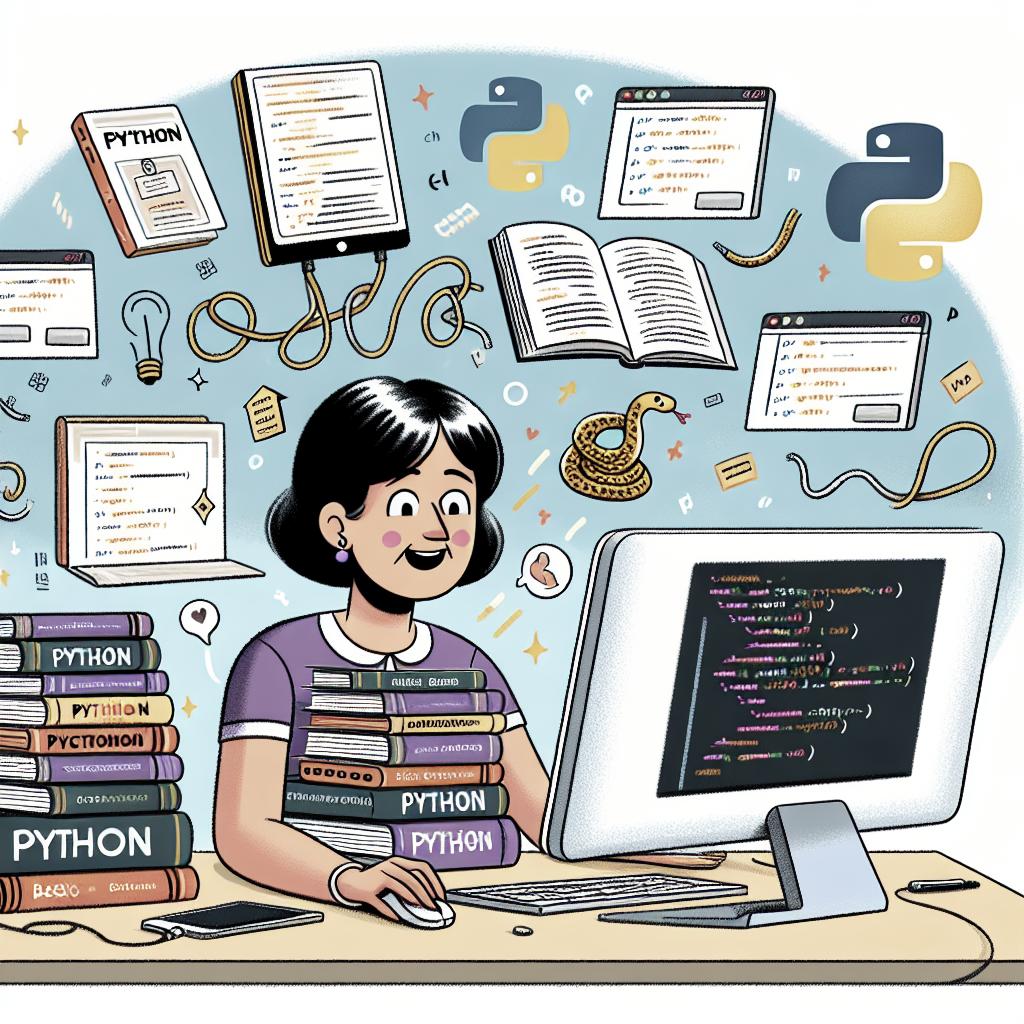“`html
How to Build Projects to Improve Coding Skills
Embarking on a journey to enhance your coding skills can feel like navigating uncharted territory. Building projects is a practical and effective way to develop these skills, as it forces you to apply what you’ve learned in a tangible way. This blog post outlines a strategic approach to building projects that not only improve your coding capabilities but also boost your confidence in solving real-world problems. From breaking projects down into manageable units to embracing imperfections, and from leveraging existing resources to utilizing search engines efficiently, this guide offers insights into tackling coding endeavors. By understanding these processes and adopting a growth mindset, you’ll be better equipped to handle the challenges and intricacies of coding.
Break the Project Down into Smaller Units
Step 1: Break everything up into sections
When you first conceive a project idea, it might feel overwhelming due to everything it encompasses. To manage it better, start by outlining the larger sections of the project. Consider what major features or modules the project comprises. For instance, if you’re building a website, sections might include front-end design, back-end logic, and database structure. This approach not only makes the project more approachable but also provides a clearer picture of the workload.
Segmenting a project into its fundamental components allows you to prioritize tasks and allocate time effectively. It is akin to creating a roadmap for your destination; without it, you could easily lose direction. By focusing on one section at a time, you reduce the scope of potential errors and can focus your learning on specific aspects of coding. This method fosters a systematic approach to problem-solving and enhances organizational skills, which are crucial for any successful project.
Step 2: Break the sections down into components
Once you’ve identified the major sections of your project, delve deeper and divide each section into smaller constituent components. These can be thought of as the building blocks necessary to complete each section. For instance, under ‘front-end design’, components could include navigation menu, content area, and footer elements. Each component should be small enough to allow you to understand and focus on its individual functionality.
Addressing smaller components eases the process of debugging and testing. It also creates mini-milestones or checkpoints, which can provide motivation through a sense of accomplishment as you progress. Whether it is a recursive function or a user interface element, taking the time to understand and implement each component instills a deeper understanding of coding principles. This incrementally builds your confidence and skills, helping you tackle larger and more ambitious projects in the future.
Write Your First Line of Code and Get Stuck
Starting a project can often be the hardest step, particularly when faced with the anxiety of a blank screen. Writing your first line of code, regardless of its perfection, is pivotal. This initial action breaks the inertia and propels the project into existence. The real learning, however, starts when you encounter your first hurdle. Rather than seeing these obstacles as setbacks, view them as opportunities to deepen your understanding and problem-solving abilities.
Getting stuck is an inherent part of coding. It’s where you learn the most, as you are forced to identify the problem, investigate potential solutions, and implement changes. During this process, you exercise critical thinking and creativity, turning theoretical knowledge into practical application. Embrace these moments as learning opportunities that contribute to the shaping of your coding mindset and technical acumen.
No Project is Perfect – Including Google
It is essential to set realistic expectations when undertaking any project. Understanding that no project is flawless, not even those developed by tech giants like Google, is crucial. Embracing this reality helps mitigate the pressure of achieving perfection and shifts the focus towards continual improvement. Imperfections are often where innovation and creativity thrive, leading to unforeseen enhancements or alternative solutions.
Acknowledging imperfection alleviates the fear of failure. It encourages experimentation and fosters a mindset geared towards exploration, rather than mere compliance. Mistakes and imperfections invariably lead to valuable insights. They teach you what approaches are ineffective and push you to refine techniques, ultimately resulting in more robust and adaptable coding skills.
Every Project is Built on Other Projects
Nearly every modern project is built upon the foundations laid by preceding projects. Many powerful technologies and frameworks available today exist because developers have shared their work with the community. Learning to utilize existing tools, libraries, and frameworks efficiently can drastically enhance your productivity and learning experience.
Open-source contributions, for instance, allow you to delve into the architecture and logic employed by other seasoned developers. By analyzing and modifying these resources, you gain insights into best practices and common pitfalls. Standing on the shoulders of giants allows you to not only build better projects quickly but also to share your creations, adding to the collective knowledge and innovation within the community.
Don’t Be Afraid to Google
In today’s digital age, search engines like Google are powerful allies. Leveraging them skillfully can uncover a wealth of information, troubleshooting guidance, and inspiration needed to solve even the most daunting of coding challenges. The key lies in asking the right questions and interpreting the solutions offered.
Basic googling tips that can help you get better results
To enhance your googling results, start by refining your queries using specific terms related to the problem. Utilize quotation marks for exact phrases or minus signs to exclude certain words. Including the programming language or framework in the search query can also narrow down relevant results significantly. Exploring discussions on platforms like Stack Overflow can provide insights from developers who have faced similar challenges.
Being persistent and patient is essential when finding solutions via search engines. Often, the answers are embedded within discussions, blog posts, or documentation, requiring a keen eye and analytical mind to extract relevant information. Practice refining your queries, and over time, you will develop a sense of how to locate precise and helpful information efficiently.
You’ll Always Get Stuck – and That’s OK
Encountering roadblocks is a natural part of the coding journey. Being stuck doesn’t indicate failure, but rather, it highlights areas ripe for growth and development. It’s essential to remain calm and persistent, even enjoying the challenge as a puzzle to be solved. Each resolution brings a better understanding of how to navigate similar issues in the future.
Seeking help from peers, mentors, or online communities is encouraged when faced with persistent issues. Collaborative problem-solving often unveils alternative perspectives or solutions that may not have been considered individually. A growth mindset recognizes that every coding issue is a learning opportunity, helping to transform frustration into motivation on the path to mastering coding skills.
Future Prospects
Improving coding skills is a continual process, and building projects can be an excellent way to achieve this. By breaking projects into manageable units, boldly writing the first line of code, and learning from imperfections, your coding abilities will evolve. Remember, leveraging existing resources and mastering searching techniques can bolster your endeavors significantly. Accepting that obstacles are part of the learning curve will foster resilience and drive long-term growth.
| Section | Content Summary |
|---|---|
| Breaking Down Projects | Dividing projects into sections and components helps manage complexity and enhances learning. |
| Writing Code & Managing Challenges | Initiating projects and using challenges for growth fosters practical application and problem-solving. |
| Embracing Imperfection | Accepting flaws encourages innovation and learning, reducing pressure for perfection. |
| Building on Existing Work | Utilizing established frameworks and resources boosts productivity and learning experiences. |
| Effective Googling | Skillful search engine use enhances problem resolution and expands the coding toolkit. |
| Overcoming Blockades | Recognizing roadblocks as learning opportunities nurtures resilience and aids skill development. |
“`


